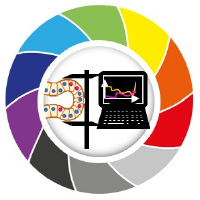Image data science with Python and Napari @EPFL
Contents
Image data science with Python and Napari @EPFL#
This Jupyter book contains training resources for scientists who want to dive into image processing with Python. It specifically aims for students and scientists working with microscopy images in the life sciences. We presume the attendees have some basic programming and image analysis knowledge. To get everyone on the same level, we start with Python programming basics. We will process images using numpy, scipy, scikit-image, SimpleITK and clEsperanto. We will explore Napari for interactive image data analysis and the Napari-Assistant for generating Jupyter Notebooks from interactively designed image processing workflows. We will use scikit-learn to process images using machine learning and deep learning techniques. We then dive into working with tables and matplotlib and seaborn for plotting results. We will use unsupervised machine learning techniques to explore relationships between parameters extracted from biological imaging data. We will use these techniques interactively in the Napari Clusters Plotter. Last but not least we will learn about good scientific practice in the programming context, and sharing code, data and documentation best practices.
Timetable#
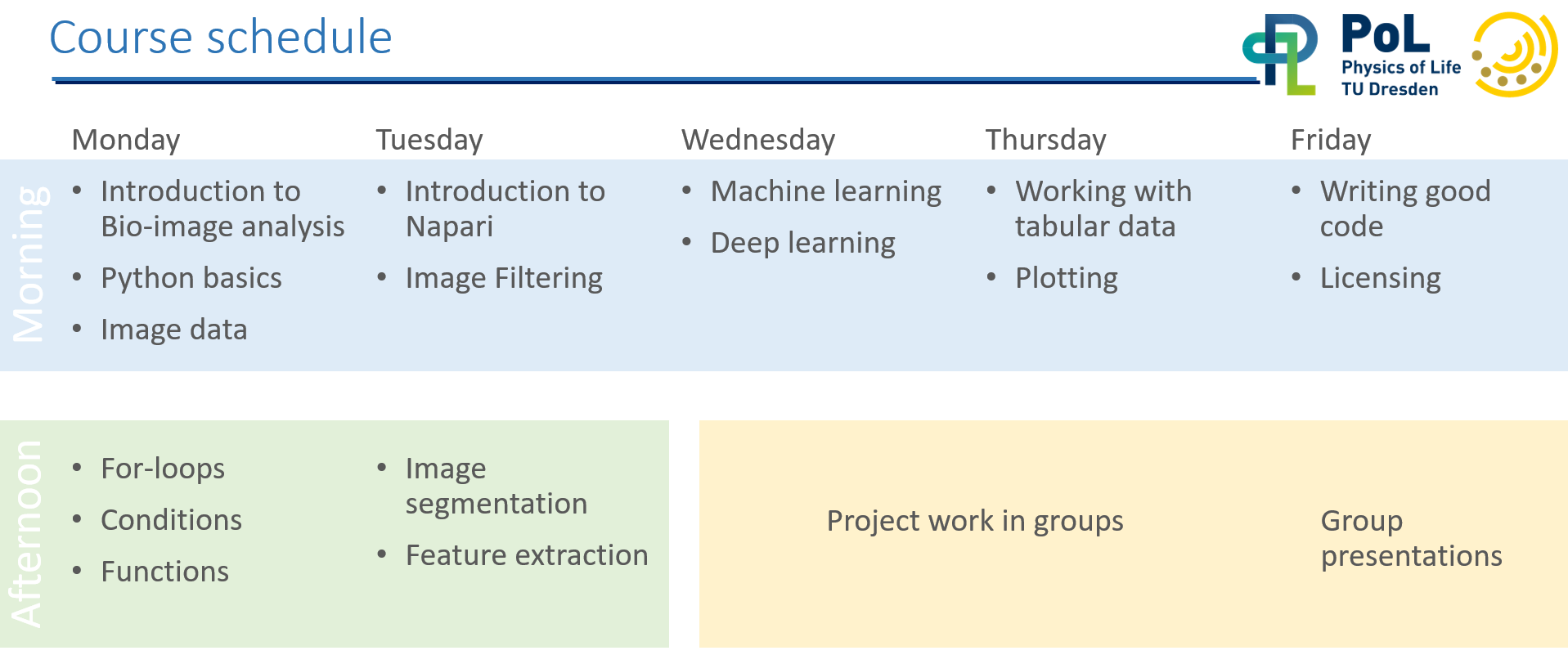
How to use this material#
For following the course, we recommend downloading the repository from which this Jupyter book is made. All Jupyter Notebooks are executable so that attendees can reproduce all demos and exercises.
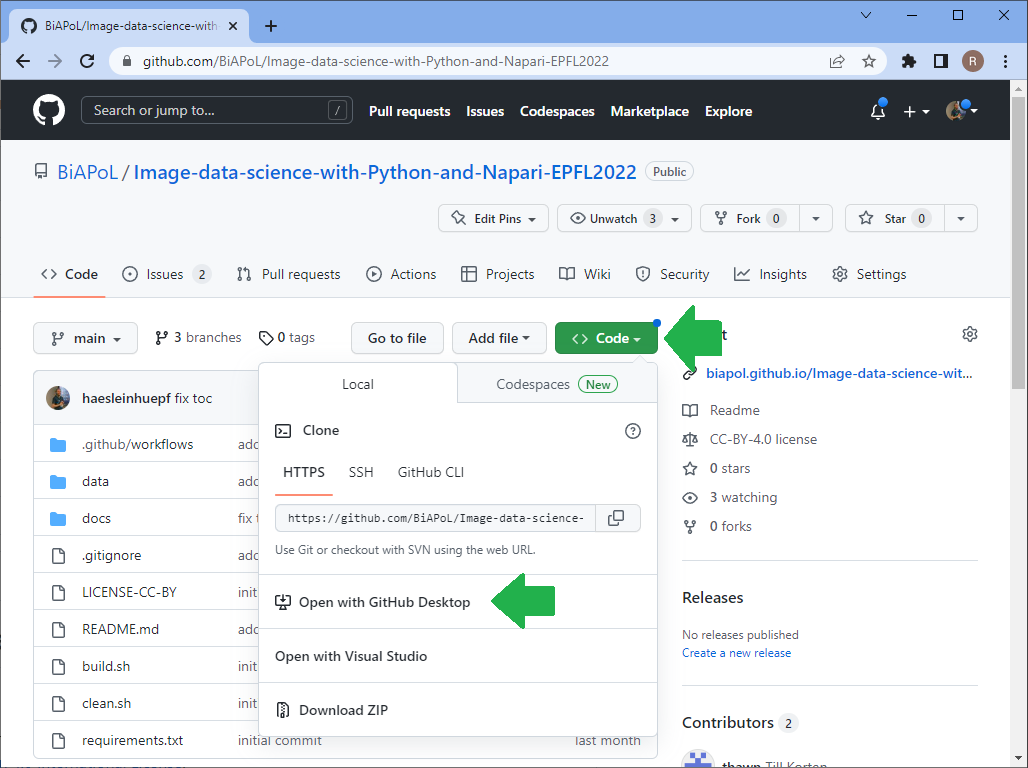
Assuming you downloaded the repository to your Desktop, you can open the Jupyter book by opening a terminal and typing:
cd Desktop/Image-data-science-with-Python-and-Napari-EPFL2022
conda activate devbio-napari-env
jupyter lab
Using Jupyter lab, you can navigate to the course lessons in the docs folder.
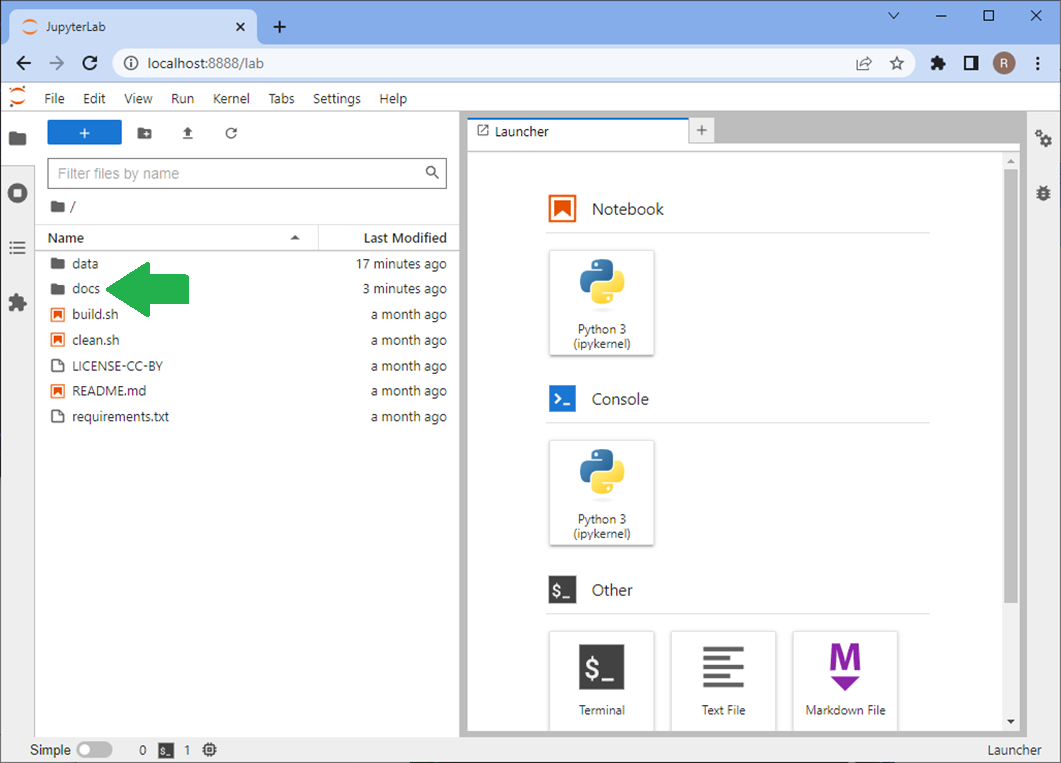
… and execute the code and experiment with it.
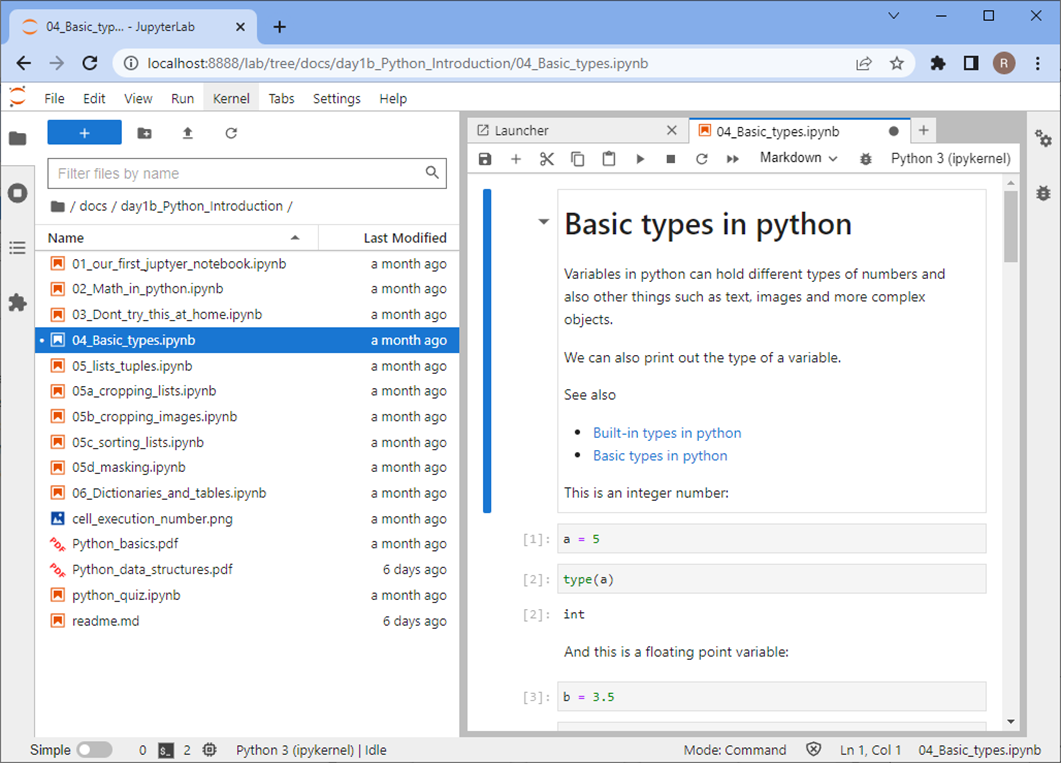
Feedback and support#
If you have any questions, please use the anonymous etherpad (see email) or create a github issue. Alternatively, open a thread on image.sc, put a link to the lesson or exercise you want to ask a question about and tag @haesleinhuepf.
Acknowledgements#
This course was held virtually at EPFL Lausanne in December 2022. We would like to thank Suliana Manley for the invitation, Edward Andò, Mallory Wittwer, Florian Aymanns for the local support and the EPFL Lausanne for financial support. We would like to thank all the people who shared teaching materials we are reusing here, in particular Anna Poetsch (Biotec Dresden), Benoit Lombardot (MPI-CBG Dresden), Martin Weigert (EPFL Lausanne) and Alexander Krull (U Birmingham). We acknowledge support by the Deutsche Forschungsgemeinschaft under Germany’s Excellence Strategy—EXC2068–Cluster of Excellence Physics of Life of TU Dresden.
